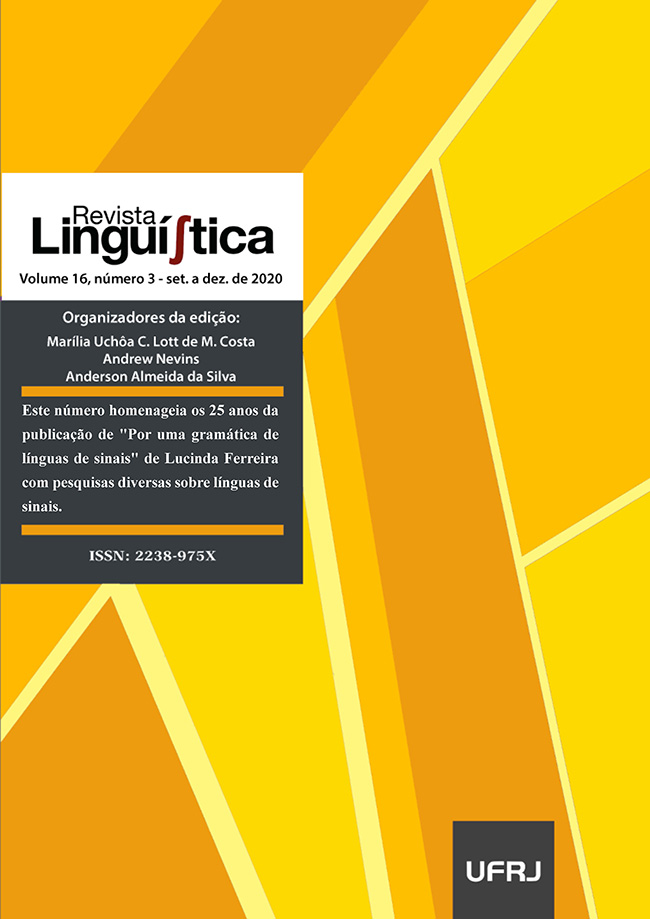Translation of biblical characters’ names into Brazilian sign language: analyzing “the claim of silence” manual
DOI:
https://doi.org/10.31513/linguistica.2020.v16n3a35914Keywords:
Onomastic, Anthroponomics, Translation Studies, Name sign, Libras.Abstract
Onomastics is a line of Lexicology that studies people’s proper names (anthroponyms), as well as place’s proper names (toponyms). As a scientific field, it interacts with other areas of knowledge, such as Translation Studies. Sign languages, in the same way as other oral languages, also have proper names, in line with their visual-spatial characteristics, through what we call “name signs”. From an exploratory perspective (GIL, 2008), we will analyze 92 biblical characters’ name signs, extracted from the book Manual do Clamor do Silêncio (1991), in order to show how they were translated into the Brazilian Sign Language - Libras. Regarding its theoretical framework, the paper relies on the studies of: Nord (2003), who investigates the translation of proper names; Bailey (2007), with studies focused on the translation of biblical names; Barros (2018), who comes up with a taxonomy for name signs in Libras, and the anthropologist Assis-Silva (2012), who analyzes religious practices and their interference in the history of the Brazilian Sign Language. Based on the findings made by Barros (2018), who identified a preference for assigning a name sign motivated by the name in the Portuguese language, plus another physical characteristic, we sought to verify whether the translation of biblical name signs would follow the same pattern. As a result, it was found that almost all name signs use the first letter of the name in Portuguese followed by other motivations such as events that marked the biography or the role/profession played by the analyzed characters.
Downloads
Published
Issue
Section
License
Authors who publish in the Revista Linguí∫tica agree with the following terms:
The authors maintain their rights, ceding to the journal the right to first publication of the article, simultaneously submitted to a Creative Commons license permitting the sharing with third-parties of published content as long as it mentions the author and its first publication in the Revista Linguí∫tica.
Authors may enter into additional agreements for the non-exclusive distribution of their published work (for example, posting in online institutional or non-profit repositories, or book chapters) so long as they acknowledge its initial publication in the Revista Linguí∫tica.

The journal Revista Linguí∫tica is published by the Post-Graduate program in Linguistics of UFRJ and employs a Creative Commons - Attribution-NonCommercial 4.0 International (CC-BY-NC).









